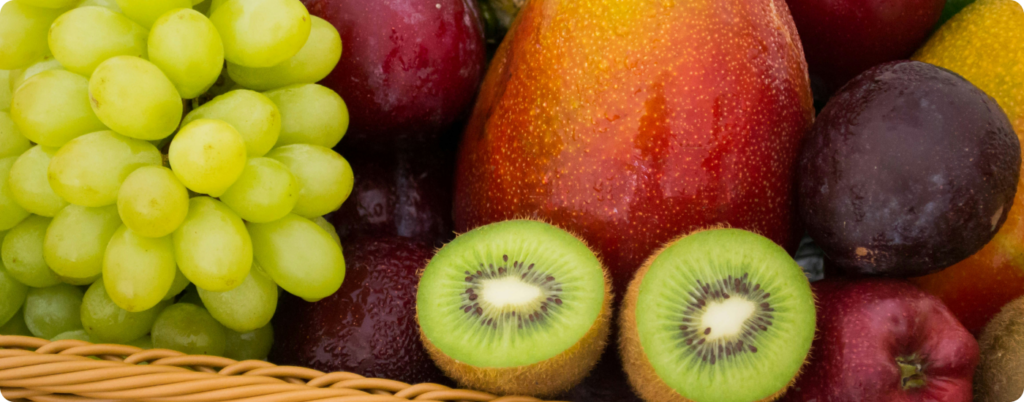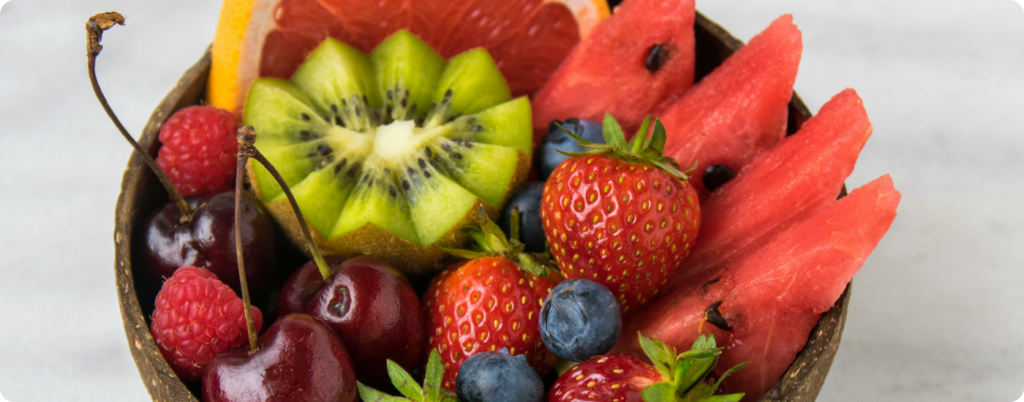Why does sugar often get blamed for weight gain, diabetes, and a host of other health issues? The real problem is not sugar itself, it’s the type of sugar most people are consuming. Modern diets are overloaded with chemically processed artificial sweeteners that are devoid of nutrients. They can wreak havoc on blood sugar, increase cravings, and harm gut and metabolic health.
The good news is that nature provides sweeteners that support your body, allowing you to satisfy your sweet tooth while promoting metabolic health. By choosing natural sources over processed alternatives, sweeteners can become a tool for nourishment rather than harm.
In this post, you’ll discover which sweeteners to avoid and the top 5 best natural sweeteners to help your body thrive.

The Benefits of Sugar
Sugar is vital to overall health, especially in supporting brain function and metabolic balance.
Sugar, in the form of glucose, is the brain’s preferred and primary fuel source, powering mood, focus, memory, and neurotransmitter production like dopamine (#).
When your body doesn’t have enough glucose, it’s forced to break down muscle or fat for fuel, which raises stress hormones like cortisol and adrenaline. Supplying your body with natural sugar provides quick energy sources that signal safety and shift you out of “fight or flight” mode (#).
Sugar also supports the production of active thyroid hormone (T3), critical for metabolism, regulates temperature, enhances digestion, and promotes overall hormonal balance (#).
What Are Processed Sweeteners?
Many sweeteners, even those labeled “natural” or “healthy,” undergo heavy processing that strips them of nutrients. Here’s a breakdown of the different types of processed sweeteners:
Artificial Sweeteners
- Examples: Aspartame, sucralose, saccharin, acesulfame potassium, neotame, advantame
- Processing: These lab-created, non-nutritive sweeteners contain zero calories and are designed to mimic the taste of sugar.
Sugar Alcohols
- Examples: Erythritol, isomalt, lactitol, maltitol, sorbitol, xylitol
- Processing: These nutrient-lacking sugar alcohols are synthetically produced with fewer calories than sugar and can often cause digestive distress.
Plant-Derived Non-Caloric Sweeteners
- Examples: Allulose, monk fruit, stevia, tagatose
- Processing: These are sourced from plants but highly refined. Stevia and monk fruit, for example, are purified into concentrated extracts, stripping away most of the whole-food benefits.
Refined & Processed Sugars
- Examples: White sugar, brown sugar, corn syrup, high-fructose corn syrup (HFCS)
- Processing: These are industrially refined and nutrient-poor.

The Problem with Processed Sweeteners
Processed sweeteners can disrupt key systems in your body, even when marketed as “healthy.”
1. Metabolic Disruption
Highly processed sweeteners lack fiber and micronutrients, which can cause blood sugar imbalances, potentially contributing to weight gain and insulin resistance over time. Even calorie-free artificial sweeteners have been linked to impaired glucose metabolism (#).
2. Appetite Confusion
Artificial sweeteners, such as aspartame and sucralose, can stimulate hunger rather than satisfy it, tricking your body into craving more food and contributing to overeating (#).
3. Altered Digestion
Your gut microbiome is critical in digestion, immune health, and mood regulation. Artificial sweeteners can damage beneficial bacteria, which can cause inflammation. Sugar alcohols like xylitol and erythritol can also cause bloating and gas in sensitive individuals (#).
The Top 5 Natural Sweeteners
We evaluated natural sweeteners based on nutrient content, minimal processing, and low heavy metal or pesticide contamination risk.
1. Fruit
Why It’s Better: Whole fruits are packed with fiber, potassium, vitamin C, and hydration.
Health Benefits: Fruit is a natural sweetener that supports gut health and immune health while providing antioxidants that can help protect against oxidative stress in the body. Still, only about 12% of U.S. adults meet the recommended fruit intake (#).
How to Use: Add fruit to each meal, blend into smoothies, or pair with cheese for a balanced snack.
2. Raw Honey
Why It’s Better: Raw, unfiltered honey contains enzymes, antioxidants, vitamins such as B5, and minerals such as zinc and magnesium. Darker honey tends to mean higher nutrient content.
Health Benefits: Raw honey has antibacterial and antimicrobial properties and can help improve the gut microbiome (#). It contains polyphenols, an antioxidant, which can help reduce inflammation, aid memory, and support heart health memory (#, #).
How to Use: Drizzle raw honey over fruit, stir into yogurt, or mix into warm milk as a calming bedtime snack.

3. Maple Syrup
Why It’s Better: Made simply by boiling tree sap, maple syrup is minimally processed and naturally rich in minerals like manganese, zinc, and antioxidant compounds.
Health Benefits: It supports energy production, and can fight oxidative stress while providing a steady, natural source of carbohydrates (#).
How to Use: Add maple syrup to your smoothie, swirl it into a glass of kefir, or drizzle it over baked squash.
4. Molasses
Why It’s Better: Molasses is a byproduct of sugarcane processing, but unlike refined sugar, it contains a plethora of minerals thanks to minimal processing.
Health Benefits: Just one tablespoon of molasses contains 13% of the daily value of manganese, 12% for magnesium, and 11% for copper. It also contains polyphenols to help protect against oxidative stress and can even support testosterone production (#, #).
How to Use: Molasses can contain heavy metals depending on the processing, so sourcing is important (#). Opt for high-quality, third-party-tested brands. Stir a spoonful into warm milk, blend it into a meat marinade, or use it as a glaze on sweet potatoes.
5. Coconut Sugar
Why It’s Better: Coconut sugar is made by boiling sap from coconut palm flower blossoms and then allowing it to dry and crystallize.
Health Benefits: Coconut sugar contains small amounts of nutrients like potassium and zinc. It also contains a significant amount of inulin, a prebiotic fiber required for creating fatty acids like acetate and butyrate that support gut health (#).
How to Use: Sprinkle coconut sugar on your fruit or mix it into your morning warm drink.
How Much is Too Much?
There’s no one-size-fits-all carb intake, especially on an animal-based diet. Your ideal intake depends on stress levels, metabolic health, and your activity. If you’re lifting, sprinting, or breastfeeding, you’ll likely need more carbs to nourish your body and fuel recovery.
Don’t fear carbs! Staying too low-carb for too long can slow your metabolism, disrupt sleep, reduce libido, increase fatigue, and even trigger muscle cramps.
No matter your intake, always lead with protein, then pair it with saturated fat (like tallow or dairy) and a source of easily digestible carbohydrates (like fruit or honey) for balanced energy and optimal nutrient absorption.
You’ll know you’ve hit your sweet spot when your energy, digestion, mood, and libido are all thriving.

Metabolic Health: Beyond Carbohydrates
Supporting your metabolism isn’t just about choosing the right sugars. One of the most powerful things you can also do is eliminate polyunsaturated fatty acids (PUFAs) found in seed oils like canola, soybean, sunflower, and safflower. These fats can interfere with how your body uses glucose and produces energy at the cellular level (#).
Equally important are the daily habits that regulate your circadian rhythm. Priortizing sleep and sunlight send powerful signals to your metabolism, helping your body process carbohydrates more efficiently and reduce stress hormone output (#).
When you combine nourishing food choices with a rhythm that respects your biology, your body becomes far more resilient and you feel the difference.
The Bottom Line
Not all sugar is created equal. Highly processed artificial sweeteners that dominate the modern food supply can disrupt metabolic health and gut function.
Fortunately, natural sweeteners such as fruit, raw honey, and maple syrup are nutrient-dense, easy to digest, and work with your body, not against it. Paired with an animal-based diet and supportive lifestyle habits, these natural sweeteners can help shift your body out of stress and into a pro-metabolic, healing state.
Stick with sugars that come from the earth—not a lab—and you can enjoy them as a nourishing part of your day, promoting energy and long-term radical health.
Subscribe to future articles like this: